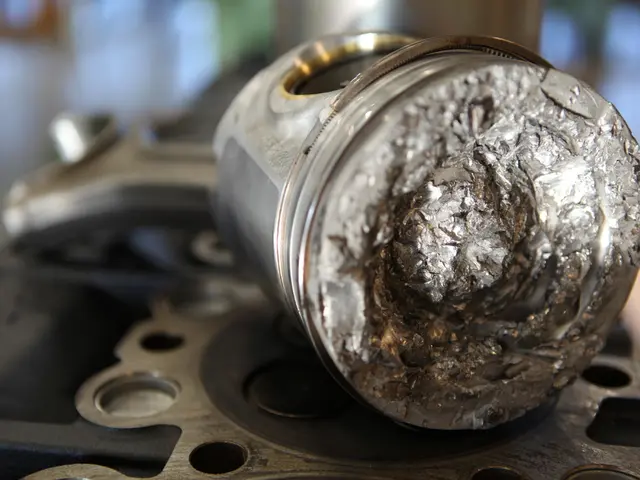Trump and Powell's Final Strategy
The Federal Reserve, the central bank of the United States, has recently faced pressure from the White House to adjust its monetary policy. This tension came to light when Erika McEntarfer, who oversaw the compilation of a US jobs report showing a significant jobs slowdown, was replaced.
One potential candidate to replace current Federal Reserve Chair Jay Powell is Kevin Hassett, Trump's senior economic adviser. However, the likelihood of the Federal Reserve being captured by the Trump administration is low due to its structural independence and legal protections.
The Federal Open Market Committee (FOMC), which controls monetary policy, consists of 12 members. The president can only appoint Board members when terms expire, and these long terms insulate the Fed from swift replacement. Even with members appointed by Trump, there was no prospect of a majority of compliant votes.
Legally, the Fed chair cannot easily be removed by the president. Supreme Court rulings limit removal powers over the Fed chair compared to other independent agency heads, and firing Powell would likely provoke protracted litigation with unclear outcomes.
Politically, Trump has pressured Chair Powell to cut rates aggressively, posing risks to economic stability. Efforts to remove or replace Fed leadership without customary protocol could lead to legal battles and institutional disruption.
If the Fed were to be captured by political interests, the consequences could be severe. The loss of confidence in U.S. monetary policy could undermine its credibility. Politically driven rate cuts during low unemployment or tariff-induced price pressures could spur inflation or asset bubbles. Legal and institutional conflicts could arise, and long-standing norms could be eroded.
The prospect of a politically influenced Fed has spooked investors, with India reportedly in a state of near-panic about Trump's hostility. Trump's contentious relationship with Powell, his desire for lower interest rates, and his appointment of Stephen Miran, chair of the White House's Council of Economic Advisers, to the Fed board, have raised concerns about the Fed's independence.
Historically, presidents have often had a preference for cheap money, but their preferred candidates for the Fed may not always align with their expectations. Reagan appointed Alan Greenspan in part because he was viewed as more politically pliable and likelier to cut rates than Paul Volcker. However, Greenspan's tenure showed that a Fed pick could disappoint the president.
In summary, while the Trump administration has exerted political pressure on the Fed and floated early replacement plans, the Fed's structural independence, statutory protections, and the makeup of the FOMC make actual capture unlikely. However, persistent political interference risks undermining the Fed’s credibility and economic stability.
- The Federal Reserve's monetary policy has recently faced pressure due to Trump's efforts to adjust it, with one potential candidate being Kevin Hassett, his senior economic adviser.
- The likelihood of the Federal Reserve being captured by the Trump administration is low due to its structural independence and legal protections.
- Investors are spooked by the prospect of a politically influenced Fed, as Trump's hostility and pressure for lower interest rates raise concerns about the Fed's independence.
- Historically, presidents have often preferred cheap money, but their preferred candidates for the Fed may not always align with their expectations.
- If the Fed were to be captured by political interests, the consequences could be severe, including the loss of confidence in U.S. monetary policy, potential spurring of inflation or asset bubbles, and erosion of long-standing norms.




